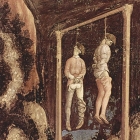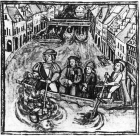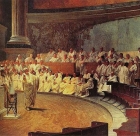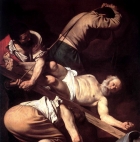Thematic
For those teachers used to teaching the Modern World course, the concept of a Thematic study is going to take some mental readjustment. It will not only involve teaching unfamiliar content, it will also require teaching second order concepts over arcs of time. There are three choices from the examining bodies for the thematic study. There are 5 different thematic studies on offer through the various awarding bodies. They vary slightly in their titles but can be summed up under the following broad headings: Read more
Sort by:
Date (Newest first) | Title A-Z
Show:
All |
Articles |
Podcasts |
Multipage Articles
-

Revisiting chronological knowledge from before 1066
ArticleClick to view -

Continuity in the treatment of mental health through time
ArticleClick to view -

Cunning Plan 149.2: Exploring the Migration experience
ArticleClick to view -

The Bloody Code - Early Modern Crime and Punishment
ArticleClick to view -

Crime and Punishment - Roman to Early Modern
ArticleClick to view -

Crime & Punishment - Factors and Time Periods
ArticleClick to view -

Roman Crime and Punishment
ArticleClick to view -

Change and Continuity
ArticleClick to view -

Causation
ArticleClick to view -

Teaching the history of women in Europe in the twentieth-century
ArticleClick to view

